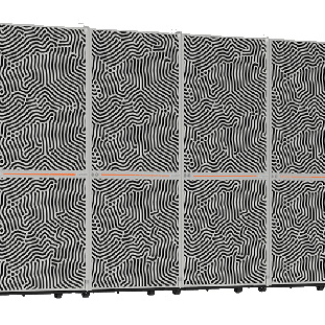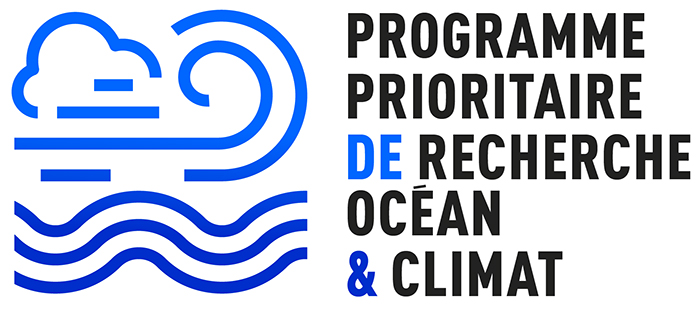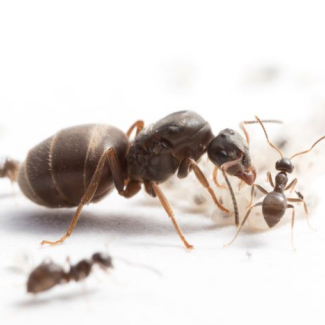
Ocean and climate: French research called on to take part in a Priority Research Programme
|
• The ocean is an ecosystem under threat from global warming, pollution, resource overexploitation and habitat degradation. |
Led by the CNRS and IFREMER for the benefit of the entire French scientific community, the new 'Ocean and Climate' Priority Research Programme seeks to organise French research with the goal of improving our understanding of this ecosystem and better protecting it. The seven major challenges to be addressed by the research teams were set out at a press conference on the occasion of World Oceans Day, June 8, 2021.

The ocean makes up 71% of our planet. Today, it is under threat from global warming, pollution, resource overexploitation and habitat degradation. With the aim of better understanding and protecting the ocean, French President Emmanuel Macron has announced the creation of the 'Ocean and Climate' Priority Research Programme (PRP), to be launched on June 8, 2021. Planned to run for six years, it will be allocated a budget of €40 million and placed under the responsibility of the French Ministry of Higher Education, Research and Innovation and the General Secretariat for Investment. It will be jointly managed by CNRS and IFREMER.
The move demonstrates unprecedented awareness of the major challenges facing the ocean, and is reflected in high-level involvement by the French State via a steering committee involving the following Government Ministries: Ministry of Higher Education, Research and Innovation, Ministry for the Sea, Ministry for Ecological Transition, Ministry for Overseas France, Ministry of the Armed Forces, and Ministry for Europe and Foreign Affairs, together with the General Secretariat for Investment, the General Secretariat for the Sea and the National Research Agency.
The new programme is therefore extremely timely. It will help to give France a central position in a number of international ocean programmes such as the European Commission's Mission Starfish 2030 and the United Nations Decade of Ocean Science for Sustainable Development (2021-2030).
The 'Ocean and Climate' PRP is organised around four specific geographical areas (overseas France; the deep ocean; the polar oceans; coastal ecosystems in mainland France) and three priorities (forecasting the ocean's response to climate change, and adaptation scenarios; sustainable use of the ocean and preservation of its biodiversity and ecosystem services; reducing ocean pollution).
On this basis, seven interdisciplinary challenges have been defined by the PRP's scientific council, chaired by Yunne Shin, senior researcher at the French National Research Institute for Sustainable Development (IRD). For the scientific community, the objective will be to address these seven challenges by proposing ambitious projects that for the next ten years will shape French research, focusing on the major sustainable development issues concerning the ocean:
- Predicting the impacts of climate change-related extreme weather events in overseas France in order to guide regional policies: the intertropical zone is an area where there are great uncertainties when it comes to simulating climate change. Research will focus on understanding the extent to which an increase in the frequency of storms and marine heat waves will impact these regions, as well as the effect of sea level rise on populations.
- Intensifying research in the polar oceans, which are undergoing extremely rapid change: the Arctic is heating up three times faster than anywhere else, and the sea ice is fast disappearing, leading to major disruption of the Arctic ocean ecosystem. In addition, the polar oceans are at the very heart of major geostrategic issues, since they are home to hydrocarbon resources. To what extent will all these factors affect indigenous populations?
- Characterising the ocean 'exposome' in order to protect marine ecosystems: the ocean exposome refers to the overall amount of exposure to pollutants that this environment undergoes. How big is this exposome and what impact does it have on the ocean and the species that live there?
- Developing innovative observation and modelling programs to better understand the ocean: only a tiny part of the ocean has been accurately mapped, out of a total volume of 1 370 million km3 and a total area of some 360 million km2. Similarly, only 270 000 marine species have been identified out of a total of several million.
- Improving the protection and resilience of marine environments through the development of new integrative management approaches, via Marine Protected Areas (MPAs) for example. Although these can genuinely benefit the population, they need to be better studied in order to find out how to maximise all their advantages.
- Using the ocean's resources on the basis of sustainability science, especially with regard to the exploitation of the deep sea and its mineral reserves. How are deep-sea ecosystems affected? This challenge relates in particular to fishing. In 2020, 60% of the 400 000 tonnes of fish landed in mainland France came from sustainably exploited populations, and yet overfishing still affects 21% of fish populations, while 2% are thought to have "collapsed”.
- Sharing the discovery of the ocean and associated societal issues with the general public: all this research will have little impact if society is not involved. As a result, the PRP hopes to actively involve society in the protection and development of the ocean. It is essential to inform as many people as possible not only about its state, but also about the answers and solutions proposed by research.

The CNRS and IFREMER also offer you a selection of photographs related to the challenges of the Ocean and Climate PRP. If you are a journalist, please contact us, mentioning your media, in order to access the HD files.


